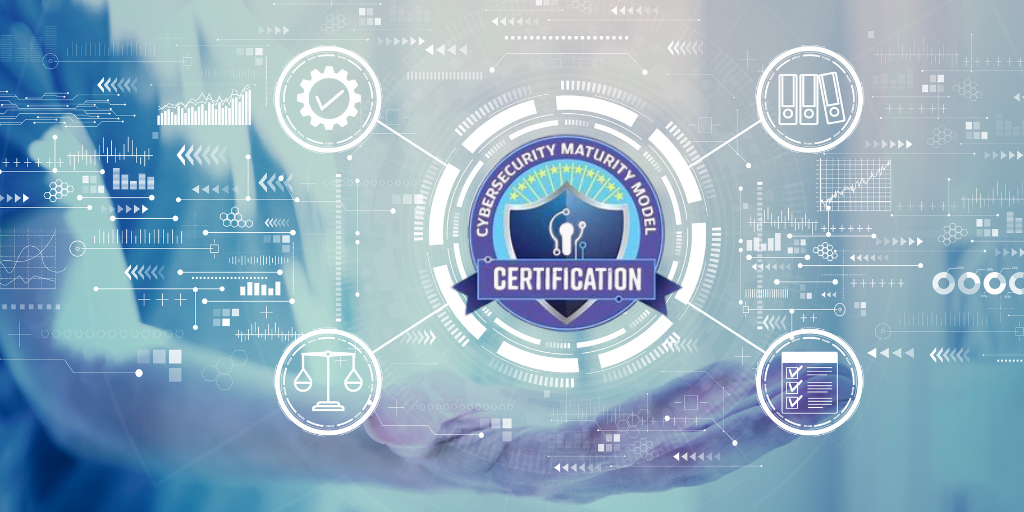Addressing CMMC Compliance Gaps for Small Businesses
Navigating the complex landscape of CMMC compliance can be a daunting task for small businesses, but with the right strategies, achieving and...
5 min read
.jpeg) Michael Markulec
:
Apr 16, 2025 8:36:31 AM
Michael Markulec
:
Apr 16, 2025 8:36:31 AM

Navigating the complex landscape of CMMC compliance can be a daunting task for small businesses, but with the right strategies, achieving and maintaining compliance is possible.
The Cybersecurity Maturity Model Certification (CMMC) is a comprehensive and unified standard designed to enhance and implement robust cybersecurity measures across the defense industrial base (DIB). This framework is crucial for protecting Federal Contract Information (FCI) and Controlled Unclassified Information (CUI) from cyber threats that could compromise national security and business integrity. The CMMC framework is meticulously structured into five distinct levels, each representing a progressive stage of cybersecurity maturity. These levels range from basic cyber hygiene, including fundamental security practices, to advanced practices incorporating sophisticated and proactive cybersecurity measures.
For small businesses, gaining a thorough understanding of the specific requirements associated with each CMMC level is imperative. This knowledge is essential to accurately determine the appropriate level of certification needed to meet contractual obligations and protect sensitive data. Understanding the basics of CMMC compliance involves recognizing the critical importance of safeguarding sensitive information and comprehending the potential repercussions of non-compliance. These repercussions can significantly impact business operations, leading to lost opportunities, financial penalties, and damage to reputation. Therefore, small businesses must prioritize familiarizing themselves with the CMMC framework to ensure they are adequately prepared to meet these stringent cybersecurity standards and maintain their competitive edge in the defense sector.
Small businesses often encounter a variety of common compliance gaps when striving to meet the stringent requirements of CMMC standards. These gaps typically manifest in several critical areas, including the development and implementation of robust cybersecurity policies, which are often found to be inadequate or outdated. Without comprehensive policies, businesses may struggle to establish a strong security posture. Furthermore, insufficient user training is a prevalent issue, as employees may not be adequately informed about cybersecurity best practices, leading to increased vulnerability to cyber threats. Outdated software is another significant gap, as it can expose systems to known vulnerabilities that malicious actors could exploit. Weak access controls also pose a substantial risk, as they may allow unauthorized individuals to access sensitive information, compromising data integrity and confidentiality.
In addition to these challenges, many small businesses lack proper incident response plans, which are crucial for effectively managing and mitigating the impact of security breaches. Without a well-defined strategy, companies may be unprepared to respond swiftly and effectively to cyber incidents, potentially exacerbating the damage. Moreover, failing to conduct regular security assessments is a common oversight that can leave businesses unaware of existing vulnerabilities and compliance deficiencies.
Identifying these gaps is the essential first step toward achieving compliance. Conducting a thorough internal review of current cybersecurity practices is vital for small businesses to pinpoint areas that require improvement accurately. This review should be comprehensive and systematic, covering all aspects of the organization's cybersecurity framework. Common tools for identifying compliance gaps include vulnerability assessments, which help identify weaknesses in systems and networks; penetration testing, which simulates cyberattacks to evaluate the effectiveness of security measures; and cybersecurity audits, which provide an in-depth analysis of the organization's security posture. By utilizing these tools, small businesses can better understand their compliance status and develop targeted strategies to address identified gaps, ultimately paving the way for successful CMMC certification.
Achieving CMMC compliance can be a significant financial undertaking, especially for small businesses with limited budgets. However, there are several cost-effective strategies that these businesses can adopt to meet the stringent requirements without incurring prohibitive expenses. One effective approach is to leverage existing resources by integrating CMMC requirements into current cybersecurity frameworks, such as the National Institute of Standards and Technology Special Publication 800-171 (NIST SP 800-171). This integration allows businesses to build upon their cybersecurity measures, reducing the need for entirely new systems and minimizing additional costs. Furthermore, small businesses can invest in comprehensive employee training programs to enhance cybersecurity awareness. By educating employees on best practices and the importance of cybersecurity, businesses can significantly reduce the likelihood of human error, which is often a significant vulnerability in cybersecurity defenses.
Another strategic approach is to prioritize remediation efforts based on risk assessment. By conducting thorough risk analyses, small businesses can first identify and address the most critical vulnerabilities, ensuring that limited resources are allocated efficiently. This targeted approach allows businesses to progressively work towards full compliance while managing their financial resources effectively. Additionally, utilizing affordable cybersecurity tools and services can further aid in achieving compliance without imposing a significant financial burden. For instance, engaging information security consulting firms can offer small businesses access to advanced cybersecurity expertise and tools at a fraction of the cost of developing these capabilities in-house. Security consultants can provide threat detection and incident response services, ensuring businesses maintain a robust security posture while working toward CMMC compliance. By adopting these cost-effective strategies, small businesses can navigate the complexities of CMMC compliance and secure their operations against cyber threats without compromising their financial stability.
The CMMC assessment process is a comprehensive and meticulous evaluation of a business's cybersecurity practices, conducted by a certified third-party assessor who is well-versed in the intricacies of the CMMC framework. This process is designed to ensure that businesses meet the necessary cybersecurity standards to protect sensitive information effectively. Small companies should initiate internal pre-assessments to prepare adequately for this rigorous assessment. These pre-assessments are critical in identifying and rectifying any existing compliance gaps within the organization. By conducting these evaluations internally, businesses can proactively address potential weaknesses in their cybersecurity posture before the official assessment occurs.
Maintaining detailed and organized documentation of all cybersecurity policies, procedures, and practices is essential for a successful assessment. This documentation demonstrates the business's commitment to cybersecurity and provides the assessor with a clear understanding of the measures in place. Small businesses must ensure that their documentation is up-to-date and accurately reflects their current cybersecurity practices.
Understanding the specific assessment criteria is vital for navigating the evaluation process smoothly. Small businesses should communicate openly and collaborate with the chosen assessor to gain insights into the assessment's expectations and requirements. This partnership can help clarify any uncertainties and ensure that the business is well-prepared for the evaluation.
Additionally, small businesses must be ready to address any findings during the assessment promptly. Implementing corrective actions swiftly is crucial to achieving the desired CMMC certification level. By taking immediate steps to rectify any identified issues, businesses can demonstrate their commitment to maintaining robust cybersecurity measures and their readiness to comply with CMMC standards. This proactive approach facilitates a successful assessment outcome and strengthens the business's overall cybersecurity posture, ensuring long-term protection of sensitive information.
Given the complexity of CMMC compliance, small businesses can significantly benefit from leveraging external expertise to navigate the intricate requirements and ensure successful certification. Engaging with cybersecurity consultants offers access to specialized knowledge and resources that may be lacking in-house, providing a strategic advantage in addressing the multifaceted challenges of compliance. These experts bring a wealth of experience and technical proficiency, enabling them to conduct thorough gap analyses that identify specific areas where the business may fall short of CMMC standards. By pinpointing these deficiencies, consultants can develop comprehensive remediation plans tailored to the business's unique needs, ensuring that all necessary measures are implemented to bridge compliance gaps effectively.
Furthermore, cybersecurity consultants are crucial in guiding small businesses through the complex assessment process. Their familiarity with the CMMC framework and assessment criteria offers invaluable insights and strategies for preparing for evaluations, ensuring that companies are well-equipped to meet the rigorous standards required for certification. This guidance not only facilitates a smoother assessment experience but also enhances the organization's overall cybersecurity posture.
Collaboration with external partners extends beyond initial compliance efforts, providing ongoing support to maintain adherence to CMMC standards. Regularly updating cybersecurity practices is vital in an ever-evolving threat landscape, and external experts can help businesses stay informed about the latest threats and regulatory changes. This continuous engagement ensures that cybersecurity measures remain robust and effective, safeguarding sensitive information against emerging risks.
By leveraging external expertise, small businesses can ensure that their cybersecurity measures are compliant and resilient, enabling them to sustain their competitive edge in the defense industrial base. This strategic partnership empowers businesses to focus on their core operations while maintaining a strong security posture, ultimately contributing to long-term success and stability in a highly competitive industry.

Navigating the complex landscape of CMMC compliance can be a daunting task for small businesses, but with the right strategies, achieving and...

In an increasingly digital world, non-profits are prime targets for cyber threats. You can just discover how a Virtual CISO can protect your...

Small businesses must prioritize secure messaging to protect sensitive information and maintain customer trust.